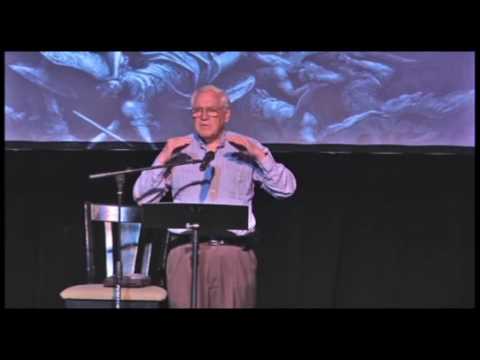In the session “10 Myths About Spiritual Warfare & Prayer Ministry,” Dr. Charles Kraft, an esteemed theologian and missiologist, illuminates common misconceptions about spiritual warfare and prayer ministry. With his profound understanding and extensive experience, Dr. Kraft aims to clarify and debunk myths that often lead to confusion, fear, and ineffective spiritual practices among believers.
Throughout the session, Dr. Kraft meticulously addresses each myth, drawing from biblical teachings, scholarly research, and real-life experiences. He emphasizes the importance of a grounded understanding of spiritual warfare, not as a sensational or mystical battle but as a fundamental aspect of the Christian walk. He also highlights the power and necessity of prayer as a tool for communication with God, spiritual growth, and intercession.
By dispelling these myths, Dr. Kraft seeks to empower attendees with knowledge and practical insights for engaging in spiritual warfare and prayer ministry more effectively and with a deeper purpose. His teachings encourage believers to approach these spiritual disciplines with a balanced perspective, rooted in Scripture and led by the Holy Spirit, thus enhancing their impact on individual lives and the broader Christian community.
Spiritual warfare and prayer ministry are foundational aspects of many religious traditions, particularly within Christianity. These practices, which involve the belief in engaging with spiritual forces through prayer and other spiritual disciplines, are often misunderstood. This article seeks to clarify and debunk some of the most common myths surrounding spiritual warfare and prayer ministry, providing a clearer understanding of these important spiritual practices.
Myth 1: Spiritual Warfare is Only for the Spiritually Gifted
Truth: Spiritual warfare is not a practice reserved for the “spiritually elite” but is a part of the Christian life. Every believer is equipped and called to engage in spiritual warfare through prayer (Ephesians 6:12).
Myth 2: Prayer is Only Effective in Certain Postures or Places
Truth: Prayer is a communion with God that transcends physical posture or location. Whether one prays kneeling, standing, or sitting, in a church or at home, it is the sincerity of the heart and faith that count (John 4:24).
Myth 3: Spiritual Warfare is About Seeking Out Demons to Cast Out
Truth: Spiritual warfare is more about standing firm in faith and utilizing God’s word (the Bible) to combat spiritual challenges than about actively seeking out demons to cast out. It involves defensive and offensive strategies like prayer, understanding Scripture, and living righteously (Ephesians 6:10-18).
Myth 4: More Prayer Equals More Favor from God
Truth: While prayer is critical in a believer’s life, it does not manipulate God into granting more favors. Prayer is about aligning one’s will with God’s, not about earning points (Matthew 6:7-8).

Myth 5: Spiritual Warfare Always Results in Immediate, Dramatic Results
Truth: The outcomes of spiritual warfare and prayer are not always instant or dramatic. Often, changes are gradual and require persistent faith and patience (Luke 18:1-8).
Myth 6: You Must Always Feel a Spiritual High During Prayer
Truth: Feelings are poor indicators of the efficacy of prayer. Prayer’s power does not depend on emotional experiences; rather, it relies on faith in God’s promise and commitment (2 Corinthians 5:7).
Myth 7: Prayer is Passive
Truth: Prayer is often viewed as a passive act, but in reality, it is a dynamic engagement with God that involves action, faith, and sometimes physical activities like fasting. It is an active pursuit of God’s will and intervention (James 2:17).
Myth 8: If Prayers Are Unanswered, It’s Due to Lack of Faith
Truth: Unanswered prayers do not necessarily indicate a lack of faith. God answers prayers according to His will and timing, which may mean saying no or not now for reasons beyond human understanding (Isaiah 55:8-9).
Myth 9: Spiritual Warfare Involves Specialized Knowledge and Complex Rituals
Truth: While some traditions may have more detailed practices, the essence of spiritual warfare lies in simple, sincere prayer and the application of biblical truths. Complicated rituals are not required (Mark 9:29).
Myth 10: Only Certain People are Targets of Spiritual Warfare
Truth: No one is exempt from spiritual battles. All believers face spiritual challenges, though the intensity and nature might vary depending on one’s faith journey and life circumstances (1 Peter 5:8-9).
Conclusion
Understanding the realities of spiritual warfare and prayer ministry is crucial for a balanced and effective Christian life. Dispelling these myths helps believers engage more deeply and authentically with these practices, fostering a stronger relationship with God and a more robust spiritual life. Remember, the key to effective spiritual warfare and prayer lies not in mysterious knowledge or activities but in a humble, faithful walk with God.

